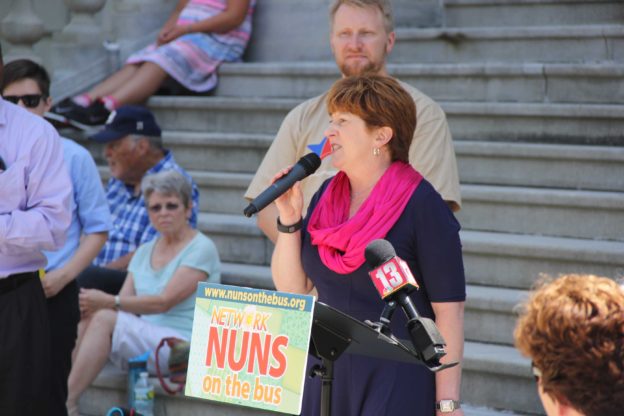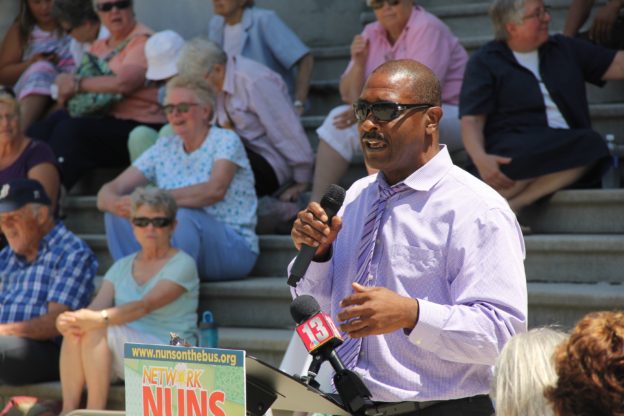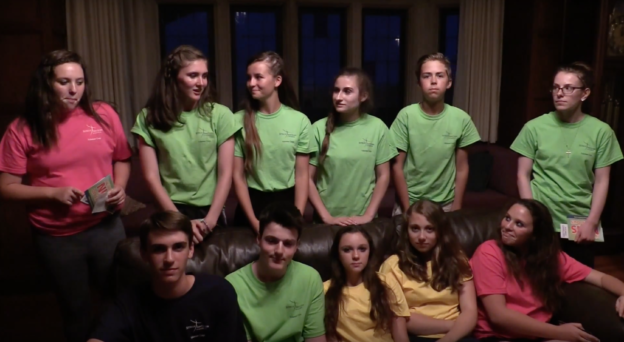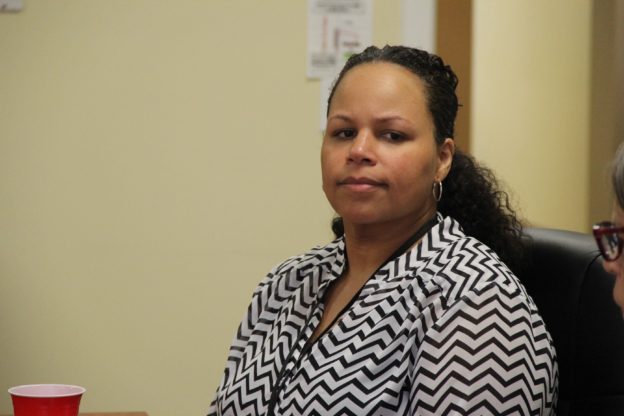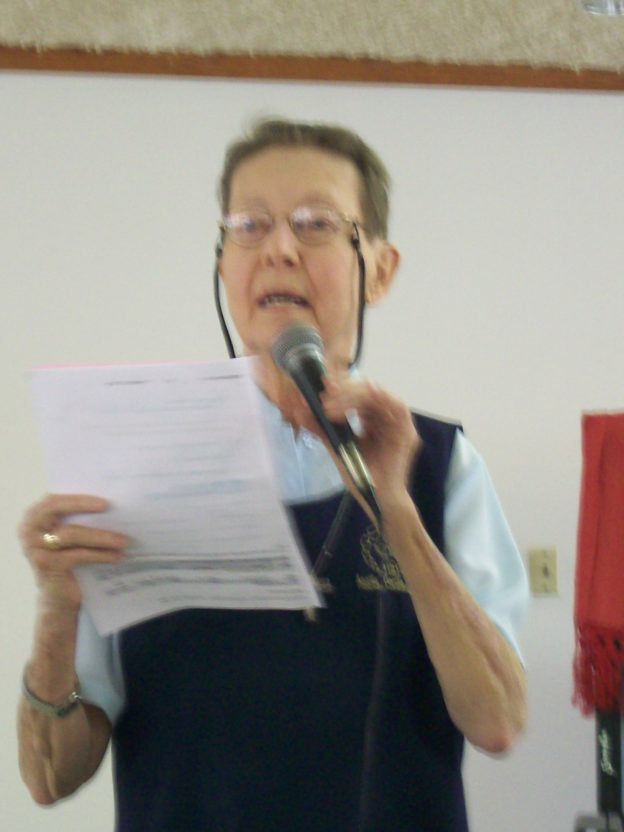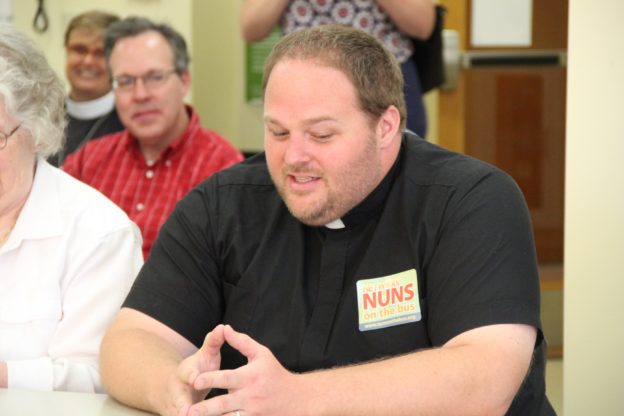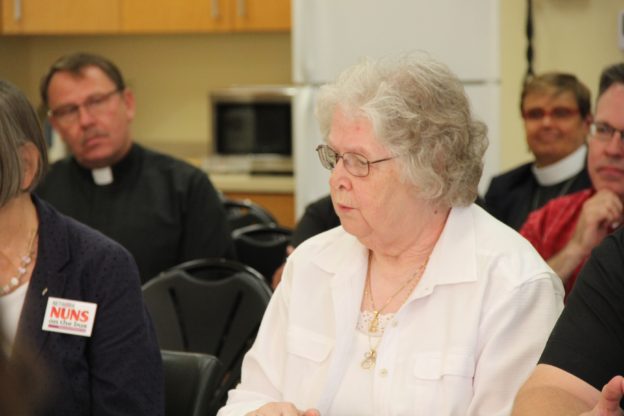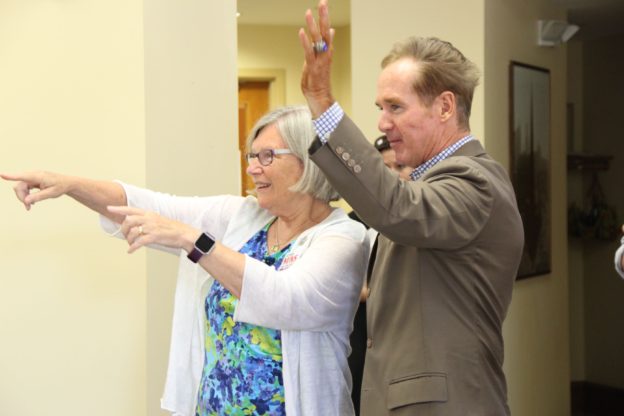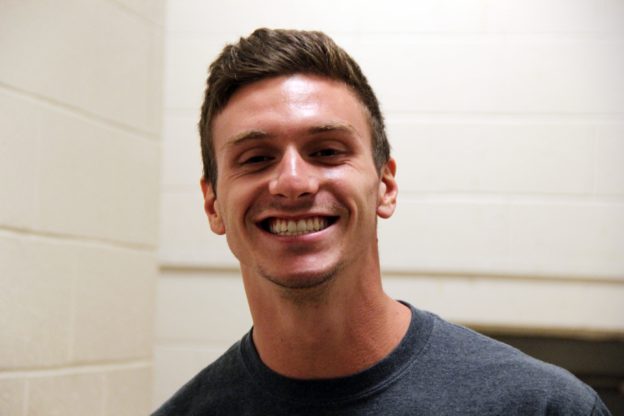Mayor Kathy Sheehan notes that far too many families struggle to pay the bills- hovering just above the poverty line. She calls attention to the needs of these families, from medical bills and transportation to to trying to provide future security for their families.
She commends the audience for bringing attention to these issues by sharing their life experiences. She says that the message to bridge the gap resonates with families both within and beyond Albany. She calls attention to gaps that prevent people from gaining access to childcare, medical care, and achieving the American Dream.
She knows that we have a long way to go to ensuring that every person has the ability to succeed. She shares her confidence that the work of the Nuns on the Bus and all those who advocate to mend the gaps will lead to success.
She notes that it’s a difficult journey, she knows that people are frustrated, but shares her reasons for hope. In the crowd she sees hope, people who are willing to do the work and haven’t given up.







